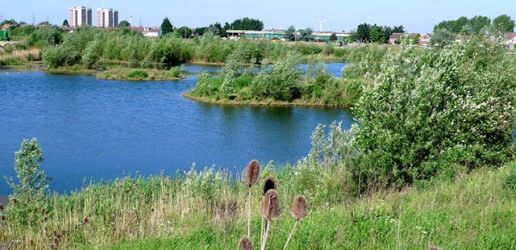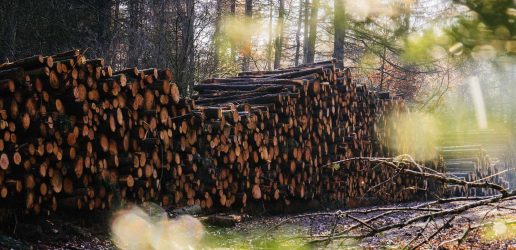A novel research project at Alice Holt forest has unearthed the UK’s rarest earthworm.
Current earthworm distribution records indicate that some UK species are rare or very rare. However, fieldwork conducted in November 2017 yielded three new records of the nationally very rare species Dendrobaena pygmaea, boosting the national records of this earthworm from six records to nine.
The discovery was made during work for a project that aims to develop a systematic method for sampling forest deadwood for earthworms. As well as standard soil pit sampling, the team sampled beneath deadwood bark and in the soil underneath the deadwood. All samples were taken from the chronosequence of forest stands established in the Environmental Change Network at Alice Holt forest in Surrey.
What does this tell us?
This finding suggests that some of the more rare species of earthworms may in fact simply have typical habitats that are under-sampled. Most of the UK’s earthworm research and surveys to date have focused on agricultural land. In addition, when forest habitats are sampled, important microhabitats (such as deadwood) are often overlooked by standard sampling methods.
Undertaking micro-habitat surveying alongside traditional sampling in forest habitats may reveal a wealth of new information and fundamentally change our understanding of earthworm species’ distributions and ecologies.
D. pygmaea
D. pygmaea is a small species, averaging 20‒35 mm in length. Current UK distribution records show it to be limited mainly to the south of England, with an additional record from the East Midlands. Its habitat preferences are understood to include well-drained soil, moist litter and mossy banks of streams in deciduous woodlands. To this, we can now add clayey soil beneath decaying wood.
Additional earthworm species findings from Alice Holt forest will be reported when this research is published later this year.
Useful sites
Recent News
View All news
New land regeneration resources for creating green spaces on previously used land now available
The new resources bring together the latest learnings on land regeneration and climate change, and optimal soil thickness for planting on previously used land.

New national survey launched to strengthen plant pest and disease detection across UK horticulture
UK horticulture and landscaping businesses invited to take part in survey to strengthen non-native plant pest and disease detection and reporting.
Forestry and timber businesses across the UK are being asked to take part in an annual survey programme to collect data about the UK timber industry.

New land regeneration resources for creating green spaces on previously used land now available
The new resources bring together the latest learnings on land regeneration and climate change, and optimal soil thickness for planting on previously used land.

New national survey launched to strengthen plant pest and disease detection across UK horticulture
UK horticulture and landscaping businesses invited to take part in survey to strengthen non-native plant pest and disease detection and reporting.
Forestry and timber businesses across the UK are being asked to take part in an annual survey programme to collect data about the UK timber industry.

